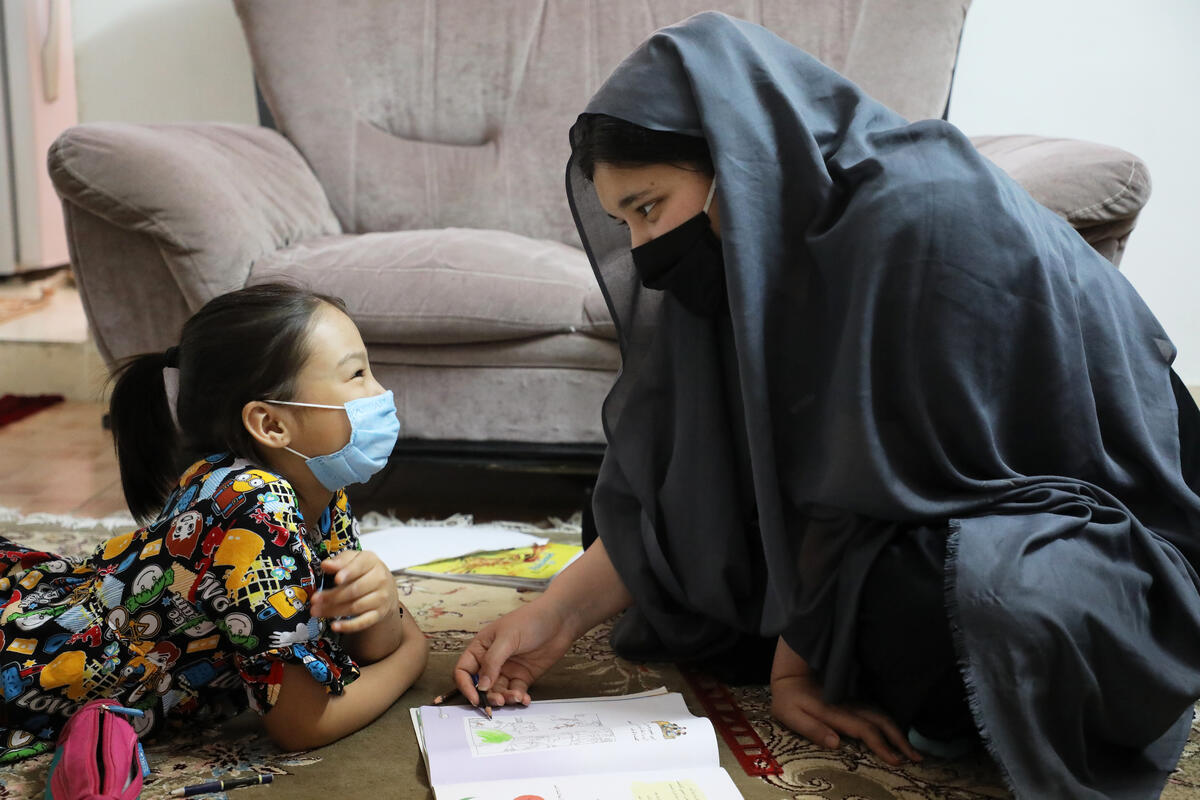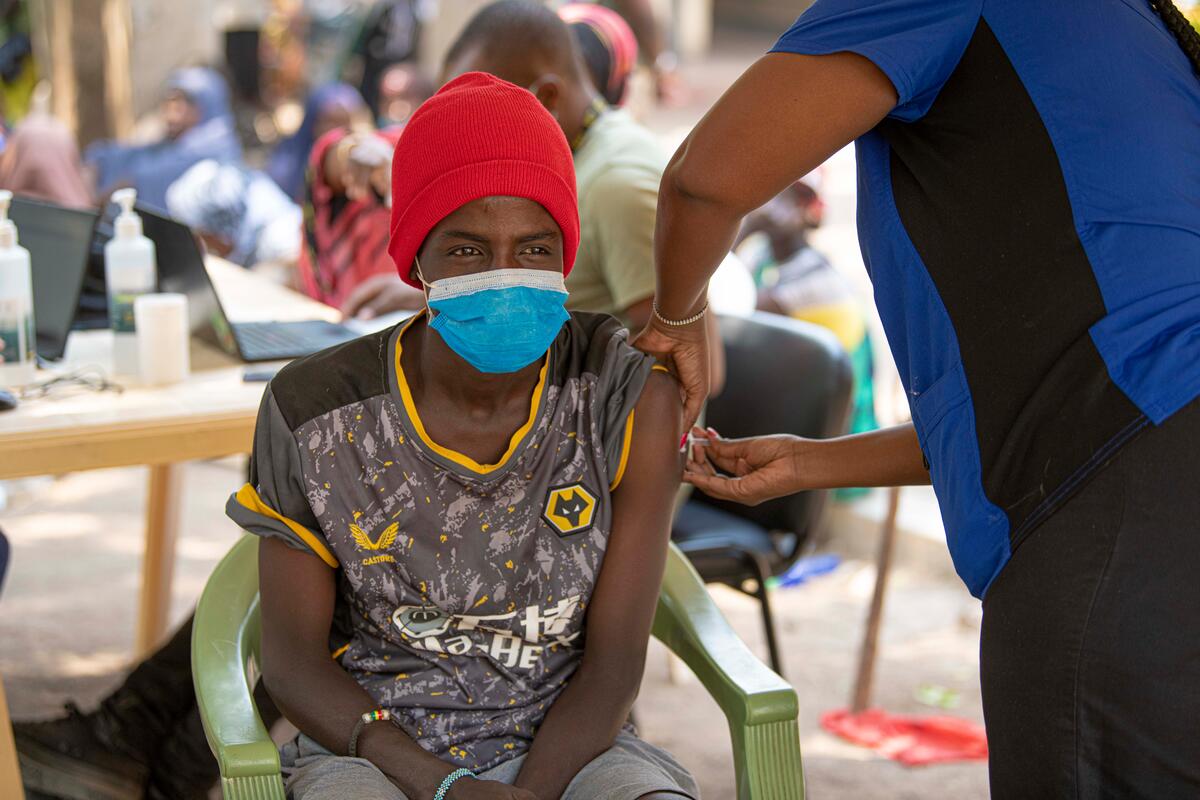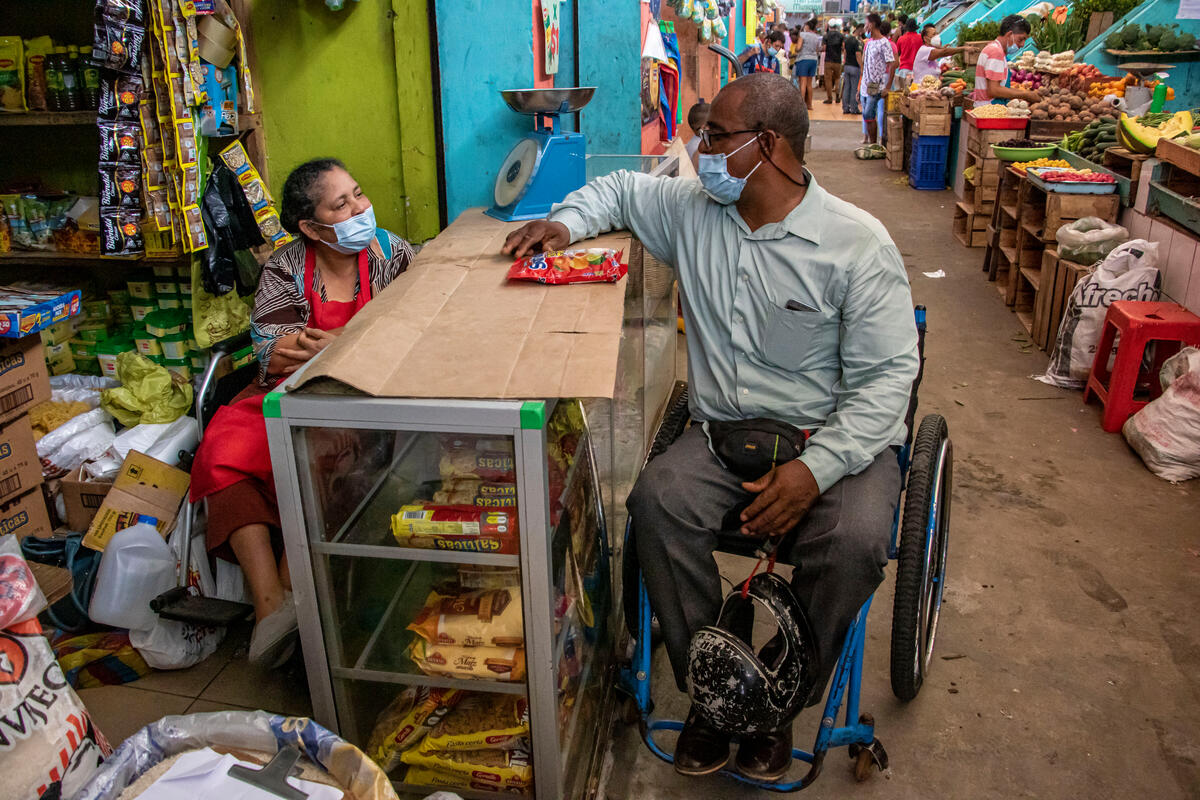UNHCR tests anti-malaria tool in Sierra Leone's refugee camps
UNHCR tests anti-malaria tool in Sierra Leone's refugee camps

FREETOWN, Sierra Leone, May 26 (UNHCR) - In a bid to fight malaria among refugees in West Africa, the UN refugee agency has started testing new anti-malaria tools in two refugee camps in southern Sierra Leone.
Under a project co-funded by the European Commission's Humanitarian Aid Office, more than 16,000 refugees in Largo and Tobanda camps are taking part in a trial of insecticide-treated plastic sheeting. The new sheeting is designed to provide not just shelter but also protection from malaria and other vector-borne diseases. Vector-borne diseases are transmitted from an infected person to another through insects or animals that serve as intermediary hosts.
In Sierra Leone, malaria is a leading public health problem, accounting for 48 percent of the country's total out-patient numbers. Among the high-risk group are refugees living in temporary camps, especially pregnant women and children. Pregnant women are vulnerable because malaria can cause miscarriages, low birth-weight babies and maternal anaemia. Malaria is also one of the major causes of death among children.
Some 54,000 refugees currently live in Sierra Leone's eight camps. Their numbers are expected to rise, with recent fighting on the Liberian border sending an influx of refugees through Zimmi way station in Pujehun district. The mass movement of people in this volatile region could exacerbate the spread of malaria as Anopheles mosquitoes bite infected people and transmit the disease by biting non-infected people.
"Malaria remains a high-scale mortality disease among displaced populations," said Matthew Burns, an operation research co-ordinator at Malaria Emergency Technical and Operation Response (MENTOR). "In refugee camp settings, bed nets are not always effective and may not be the best tool for preventing malaria. A new tool is recommended for camps, a tool that can be delivered quickly and protects refugees against malaria from the time they enter the refugee shelter."
As such, UNHCR Sierra Leone has been working with MENTOR, the John Hopkins Centre for International Emergency, Disaster and Refugee Studies (CIEDRS), and other partners to evaluate new tools for malaria control. These include insecticide-treated blankets, tents, fencing and plastic sheeting designed and manufactured under UNHCR's standard specifications.
Insecticide-treated plastic sheeting, in particular, is more practical in emergency situations as it requires less time to deploy compared to materials that are manually sprayed with insecticide. It is believed that refugees living under such sheeting should suffer less from malaria, and that malaria-related deaths in young children should decline.
In Sierra Leone, UNHCR's plastic sheeting study started in March and is now under way in Kenema district's Largo camp and Bo district's Tobanda camp. Refugees are allowed to opt out of the study; those who opt in will be informed that if they wish to stop participating, they are free to do so with no negative consequences or cessation of current care or benefits.
Participating families are given six pieces of plastic sheeting each, which they have to put up inside their shelters. Families in one section of the camps receive insecticide-treated sheeting, while others receive normal ones. Latrines in the camp are also constructed from the same material.
Over the next six to 12 months, all participating refugees will be examined regularly for signs of malaria or other diseases, and given treatment where necessary. After this period, UNHCR will assess whether the new insecticide-treated plastic sheeting is successful in controlling malaria and if it can be used in refugee camps.
"Prevention is much better than cure," said Olivier Siegenthaler, a technical expert at UNHCR. "This evaluation is really innovative, and we hope in six months' time to have some results that will allow us to test the efficiency of the project. However, it requires a lot of effort to monitor and is quite expensive."
MENTOR's Burns added, "The study is important as it will indicate to UNHCR what policy should be implemented in the near future. If the trial provides successful, all refugees will receive this new type of plastic sheeting, which can also be extended to host communities."









